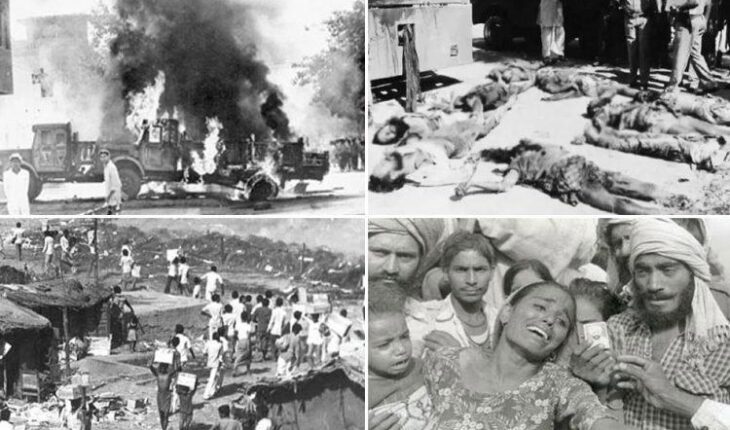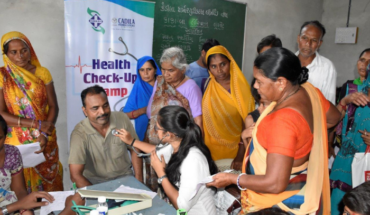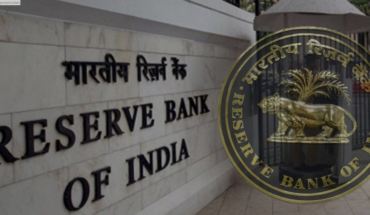Pennsylvania is the latest one to follow the footsteps of Ontario and Connecticut in recognising the November 1984 violence as ‘Sikh Genocide’, but when will the Indian governments do so and the victims get justice? asks SWINDER BAJWA
Even after 34 years, the gruesome memories of November 1984 — when a wave of brutal, unprecedented violence against the Sikhs had swept through the nation, leaving thousands of people dead, burnt, butchered, widowed, raped, homeless – are still rife. The victims of the massacre that erupted soon after the assassination of the former Prime Minister Indira Gandhi on October 31, 1984, are still waiting for justice. Declaring those series of mass crimes – in which, according to some records, thousands of community members were murdered across the country in three days – as “Sikh genocide” is one of their demand.
Sadly, not much progress has been made in bringing the culprits, or at least the instigators of the violence, to book in the country. “It is the most unfortunate to see that successive governments at the Centre, including the present one, have miserably failed to deliver justice to the Sikhs even after lapse of 34 years of the worst-ever carnage of the world,” Delhi Sikh Gurdwara Management Committee (DSGMC) general secretary Manjinder Singh Sirsa recently said at an event. “The anti-Sikh riot in 1984 has no parallel in the world and it was required that the guilty should have been punished in instant hearing of the cases, but in reality, these cases were yet to see the light of the day.”
While the Indian authorities are yet to give an ear to the demands of the community, the global forums are slowly taking note of the atrocities done against Sikhs. On April 16, 2015, the California state assembly had unanimously passed ‘assembly concurrent resolution’ that recognised the ‘systematic and organised’ killings of the community members in Delhi during the 1984 anti-Sikh riots.
Pennsylvania’s Legislative Assembly is the latest one to pass a resolution terming anti-Sikh riots of November 1984 as ‘Sikh genocide’ The non-controversial resolution — submitted by Republican representatives Alex Charlton and Jamie Santora under rule 35 – pointed out that the Sikh genocide began on November 1, 1984, after the assassination of Indira Gandhi in Delhi and the states of Madhya Pradesh, Haryana, Uttar Pradesh, West Bengal, Himachal Pradesh, Rajasthan, Orissa, Jammu and Kashmir, Chhattisgarh, Tripura, Tamil Nadu, Gujarat, Andhra Pradesh, Kerala and Maharashtra.
In July this year, Connecticut became the first state in the US to commemorate a day in the memory of the 1984 anti-Sikh riots. Following the demand of the World Sikh Parliament (WSP), Connecticut Governor Dannel Patrick Malloy had signed a bill declaring November 30 as the “Sikh Genocide Day”. WSP member Swaranjit Singh Khalsa, however, clarified that due to some “typo error”, the date of the Remembrance Day was written as November 30 instead of November 1. In the next Senate session, an amendment would be sought to change it to November 1, Khalsa said, adding that it took eight years to get the bill approved by the Senate and all the 36 senators voted in its support.
Globally, Connecticut was the second state in the world after Ontario to observe a commemoration day to mark the 1984 Sikh genocide. Ontario Assembly became the first legislature in Canada to carry a motion that described the 1984 anti-Sikh riots as “genocide”. The motion was moved by Harinder Malhi, a Member of Provincial Parliament or MPP belonging to the ruling Liberal Party of Ontario, which had voted down a similar motion earlier. While introducing the motion in April 2017, Malhi had said the Legislative Assembly of Ontario should “condemn all forms of communal violence, hatred, hostility, prejudice, racism and intolerance in India and anywhere else in the world, including the 1984 Genocide perpetrated against the Sikhs throughout India, and call on all sides to embrace truth, justice and reconciliation.”
An online campaign was also launched on October 21 to urge the governments of Canada, US, UK and Australia to commemorate November 1 as Sikh Genocide Remembrance Day. The website www.1984SikhGenocide.org allows people from US, Canada, UK, Australia to send a pre-drafted email message to their Congressmen, Senators or Member Parliaments about the issue. The campaign email to western governments and UN states that “millions of Sikhs around the world commemorate November as a month when Sikh people were subjected to genocidal attacks in India. Therefore, November 1 should be proclaimed as “Sikh Genocide Remembrance Day.”
The Sikhs for Justice (SFJ), an advocacy group, recently claimed that social media giant Twitter had blocked the phrase www.1984SikhGenocide.org from the micro-blogging website. “The organisation has sent more than 25000 emails so far through the www.1984SikhGenocide.org before the disabling of the tweets containing the campaign website address. Earlier personal Twitter account of SFJ’s legal adviser Gurpatwant Singh Pannu had also been disabled,” said the group, which disseminates information regarding the alleged genocide of Sikhs that took place in India between 1984 to 1997 with particular emphasis on November 1984 riots.
World Humanitarian and CEO of “Khalsa Aid” recently refused Indian of the year Award from a British Indian Group to highlight the issue. Ravi Singh, who had founded the non-governmental organisation in 1999 on the occasion of 300 Birth celebration of Khalsa Panth for aid and relief work, has also been consistently campaigning for Justice for 1984 anti-Sikh riot victims.
Central Bureau of Investigation told the Delhi High Court in a written submission on October 16 that the Delhi Police didn’t work honestly on the FIRs registered against Congress leader Sajjan Kumar, an alleged key perpetrator of 1984 violence. Terming the Delhi police’s investigation against Sajjan Kumar as tainted, it said the Delhi Police favoured Sajjan Kumar by hibernating FIRs registered against him so that the victims could be forced to reconcile and settle the matter. “The FIRs were kept in hibernation mode to force the genocide victims to reconcile and settle the matter with Sajjan Kumar” the CBI’s special public prosecutor RS Cheema reportedly told the Court.
The Delhi High Court bench was hearing a case related to killing of five members of a family in Raj Nagar area of Delhi Cantonment on November 1, 1984. Although retired naval officer Captain Bhagmal, former Congress councillor Balwan Khokhar, Girdhari Lal and two others were held guilty in the case by the trial court but Sajjan Kumar was acquitted. The CBI and the victim family had challenged his acquittal in the Delhi High Court.
Advocate HS Phoolka, who represents the victim family in Court, also told the Court that Sajjan Kumar enjoyed impunity for being always in positions of influence. He added that the genocide victims couldn’t be reasonably expected to take the risk of their lives by approaching the authorities till they are assured of security.
Justice is the only balm for the victims who have stood steadfast against money and muscle-power while trying to eke out a living between numerous trips to different courts where cases continue to languish. They have continuously been let down by the concerned authorities and the successive governments in the past. However, the silver lining is that the Supreme Court has finally stepped into the picture and constituted a three-member Special Investigation Team early this year to re-investigate 186 cases related to the 1984 riots, which were closed by a government-appointed SIT.
The community remains optimistic even after 34 years and hopes that the victims of the series of mass crimes against Sikhs will not only get justice but the court and the concerned authorities will also declare November 1 as “Sikh Genocide Remembrance Day.”






